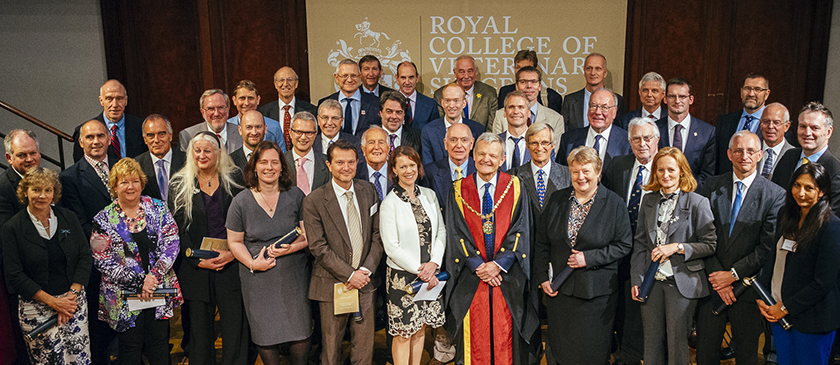-
-
- Council Members
- Role of Council Members
- Council meetings
- Council elections
- Previous election results
- Dr Louise Allum
- Dr Sam Bescoby
- Dr Andrew Clemence
- Dr Tshidi Gardiner
- Dr Reginald Godwin
- Paddy Gordon
- Dr Danielle Greenberg
- Dr Gerard Henry
- Dr Richard Hillman
- Dr Benjamin Kennedy
- Dr Tom Lonsdale
- Dr Darren Partridge
- Martin Peaty
- Alison Price
- Dr Peter Robinson
- Dr Jennifer Simmons
- Dr Sadie Spencer
- Dr Mary Thomas
- William Wilkinson
- Dr Lara Wilson
- Past-Presidents
-
-
-
-
-
- About extra-mural studies (EMS)
- EMS requirements
- Information for vet students
- Information for EMS providers
- Information for vet schools
- Temporary EMS requirements
- Practice by students - regulations
- Health and safety on EMS placements
- EMS contacts and further guidance
- Extra-mural studies fit for the future
-
-
- Code of Professional Conduct for Veterinary Surgeons
- Code of Professional Conduct for Veterinary Nurses
- Contact the Advice Team
- XL Bully dog ban
- 'Under care' - guidance
- Advice on Schedule 3
- Controlled Drugs Guidance – A to Z
- Dealing with Difficult Situations webinar recordings
- FAQs – Common medicines pitfalls
- FAQs – Routine veterinary practice and clinical veterinary research
- FAQs – Advertising of practice names
- GDPR – RCVS information and Q&As
50 new Fellows welcomed at second RCVS Fellowship Day
27 October 2017
Last Friday 20 October we welcomed 50 veterinary surgeons to the RCVS Fellowship in a day of talks and celebration at the Royal Institute in London.

All new and existing Fellows, as well as all UK-registered veterinary surgeons, were invited to attend the event which featured a keynote speech from Professor Alice Roberts, renowned scientist and broadcaster.
Out of 56 applicants this year 50 were successful in their applications to the Fellowship, of whom 25 were awarded for meritorious contributions to clinical practice, 13 for meritorious contributions to knowledge, and 12 for meritorious contributions to the profession. Dozens of veterinary surgeons came to accept their Fellowship in person, and over twenty students from UK veterinary schools also accepted invitations to attend.
After the Fellows were awarded their Fellowship, Alice Roberts, Professor of Public Engagement with Science at the University of Birmingham, gave a keynote speech on the impact that the domestication of dogs, horses and cattle has had on world history titled ‘Tamed: Three species that changed our world’. Starting with the dog, Professor Roberts talked through how scientists from a variety of disciplines collaborated to establish when modern pets evolved from the wolf, how the increase of cattle led to reduced lactose intolerance, and how the taming of the horse forever shifted human culture.
In the afternoon there were then presentations from seven of the existing RCVS Fellows on a variety of topics close to their heart. Recordings of the talks will be available over the next few weeks on our website:
- 'Mission Rabies' - Mr Ian Battersby BVSc FRCVS
- 'The health of corals, and their importance for society' - Mr Rob Gilbert BVSc MMedVet FRCVS
- ‘All structures great and small: is the profession coping with the rapid changes in the veterinary sector?’ – Professor John Innes BVSc PhD CertVR DSAS(Orth) FRCVS
- 'Do badgers kill cows or cows kill badgers?' - Mr Dick Sibley BVSc HonFRCVS
- 'A personal perspective of the medical-veterinary relationship' - Professor Brian Summers BVSc MSc PhD FRCPath FRCVS
- 'General practice is the most important veterinary specialism' - Dr Bradley Viner BVetMed MSc(VetGP) DProf FRCVS
- 'Causes and cures for cataracts’ - Dr David Williams MA VetMB CertVOphthal PhD CertWEL VetMD DipECAWBM(AWSEL) FRCVS
Nick Bacon, Chair of the RCVS Fellowship Board, said: “We were so pleased to be able to host a second Fellowship Day to welcome our new Fellows. It gave us all a chance to learn more about their truly impressive work and lay the groundwork for further collaboration and discussion. It is exactly through these kind of events that we hope to foster a society of Fellows who can learn from each other, pooling their knowledge to enhance animal welfare standards for the benefit of the profession, the scientific community, and the public as a whole.”
The application period for the Fellowship is open all year and applications received before 5 February 2018 will be considered by the Fellowship Board for inclusion in the 2018 cohort of new Fellows. For further information on applying please visit the Fellowship page on our website.